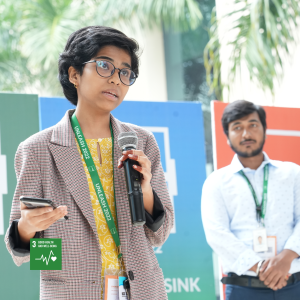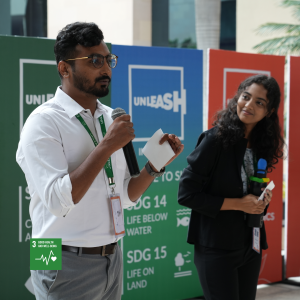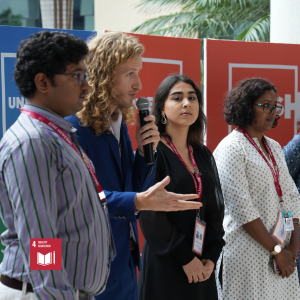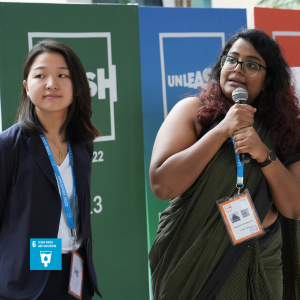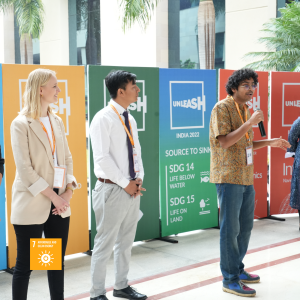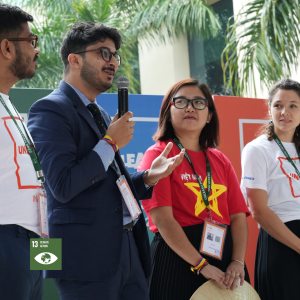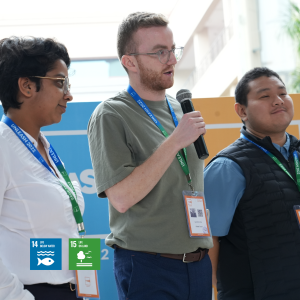UNLEASH Global
Innovation Lab
India 2022
The last UNLEASH Innovation Lab took place in the state of Karnataka in India, from the December 3 – 10. The Lab gathered 1,000 young people between the ages of 18 and 35 to come up with innovative solutions to the Sustainable Development Goals (SDGs).
Infosys Mysore, the world’s largest corporate university, hosted us during the week of innovation!
The Innovation Lab was possible thanks to our valued partners, including our core partners Chemonics, HCL Group and Infosys. Check our partner page for a full overview.
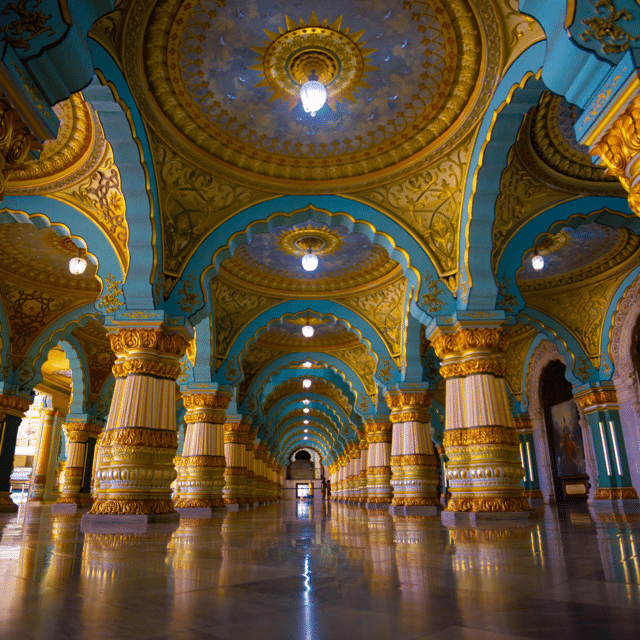
The Program

Day 1: December 3
Welcome Tour | Innovation Process Kick-off

Day 7: December 9
Innovation Wrap-up | Solution Festival | Dragons’ Den

Day 2-6: December 4 – December 8
Innovation Process

Day 8: December 10
Closing Ceremony | Farewell party

Day 1: December 3
Welcome Tour | Innovation Process Kick-off

Day 2-6: December 4 – December 8
Innovation Process

Day 7: December 9
Innovation Wrap-up | Solution Festival | Dragons’ Den

Day 8: December 10
Closing Ceremony | Farewell party
Tracks
Participants in the Global Innovation Lab in India got a hands-on opportunity to work in Teams on 7 thematic tracks that tackle specific SDGs. In addition, the top Teams from the UNLEASH Plus 2022 program, co-hosted with Chemonics International, joined the Lab for the boot camp phase.
Ultimately, the best Teams – one from each thematic track – got the opportunity to pitch their solutions to their peers and potential funders, who provided constructive feedback and support for the future implementation of their ideas. Meet the winning Teams below!
More than 41 million people die annually as a result of Non-Communicable Diseases (NCDs), equivalent to 71% of all deaths globally. During the Lab, Teams working on SDG 3 focused on solutions for improving access to care, awareness, and prevention of NCDs, particularly for vulnerable populations.
The finalists for this track focused on solutions such as developing a PH self-test kit for early detection of cervical cancer among low-income women in Bharatpur, Nepal; as well as a weight-sensitive LED strip to monitor treatment compliance among refugees at risk of cardiovascular diseases.
For this track, UNLEASH is partnering with:
In 2015, mental health was included in the SDG framework, whereby the UN acknowledged the burden of disease of mental illness and defined mental health as a priority for global development leading up to 2030. Furthermore, the World Health Organization has warned that the COVID-19 pandemic is triggering a 25% increase in the prevalence of anxiety and depression worldwide. The pandemic has especially affected the mental health of young people, who are disproportionally at risk of suicidal and self-harming behaviors.
Within this track, co-created solutions for the prevention, diagnosis, and accessible treatment and care for mental health.
The Most innovative solutions within this track revolved around very different audiences; on one hand, addressing the negative perceptions about body image and food among adolescent girls using a school-based buddy system that supports artistic expression; on the other, the mental rehabilitation of previously incarcerated individuals to ease their reintegration into society.
For this track, UNLEASH is partnering with:
The impact of the COVID-19 pandemic on schooling is a “generational catastrophe.” Before the pandemic, progress was already slow and insufficient to achieve the education targets and now the pandemic has wiped out the education gains achieved over the past 20 years. Children facing vulnerable situations and those unable to access remote learning are at increased risk of never returning to school and of being forced into child marriage or child labor. Disparities in access to education and learning outcomes persist across a range of education indicators, e.g., literacy rates between men and women or access to higher education between urban and rural.
Teams working on SDG 4 during the Lab came up with solutions to solve education challenges worldwide, by focusing on technology as an enabler of equitable and accessible education and training initiatives for all.
The leading initiatives for this track came up with a learning device for formal education that targets the requirements of people with speech impairment; as well as developed an application to provide extra-curricular learning modules on themes like communication and decision-making to students who live in communities that lack critical services.
Today, 40% of the world’s population faces water scarcity with ~$260 billion in economic opportunities lost annually due to lack of clean water access, climate change, increased pollution, and industrialization. Time spent gathering and seeking safe water sources is accounting for billions of lost economic opportunities annually, and it is disproportionally affecting children and women as they experience increased health challenges which impact mortality rates and ability to pursue education.
Teams working on SDG 6 developed solutions for current water and sanitation challenges by focusing on new initiatives to protect clean water sources, or to better manage our water use, for example.
The finalists for this track designed a system for waste management arising from single-use menstrual products made of mostly plastic, comprising collection, processing, and repurposing; and they laid the foundations of a project to bring clean, accessible, and safe toilet facilities to women living in urban informal settlements in India to reduce open defecation.
Ensuring access to affordable, reliable, sustainable, and modern energy for all will open a new world of opportunities for billions of people. Yet, today, 840 million people do not have access to energy. The lack of access isn’t the only challenge the energy sector is facing, its reliance on fossil fuels is the main contributor to climate change. Changes need to be made to the way energy is produced and consumed. The opportunities that clean and renewable energy can create including new jobs and livelihoods should be a priority when addressing increasing access to energy. Also, most remote communities get access to the needed energy.
Within this track, Teams focused on SDG 7 to create energy solutions for people living in rural areas or improving the skills needed for the transition to cleaner energy.
The most radical solutions within this track focused on bringing affordable energy to refugee camps by efficiently repurposing biomass waste coming out of the camps through hydrothermal liquefaction to generate fuel for heating and electricity.
Global warming has reached 1 degree above the pre-industrial baseline, contributing an estimated financial burden of ~$23 trillion by 2050, disproportionally impacting small island states and developing countries. On February 28, 2022, the IPCC issued its bleakest warning yet. About half the global population lives in areas “highly vulnerable” to climate change. Millions lose their homes, livelihoods, and families annually due to natural disasters. The occurrence of these events is accelerating, causing a global emergency. Transitioning to a carbon-free future is urgent. Moreover, such a transition must be fair to all and protect especially vulnerable communities and those hardest hit by global warming.
During the Lab, Teams came up with new initiatives addressing SDG 13, for example with a focus on policy transformation, inspiring communities towards a more sustainable lifestyle, or using technology to reduce the impact of greenhouse gases on the environment.
The most promising projects within this track worked on providing an alternative to disposing of post-harvest residue through mushroom production; as well as using lightweight hydrophobic sustainable material to make roofing for people living in informal settlements to make their homes resilient to the impact of heavy rainfall and excessive heating.
For this track, UNLEASH is partnering with:

Nature and ocean conservation play a critical role in our survival. Terrestrial and aquatic ecosystems provide us amongst others with food, drinking water, oxygen, energy, and medicines. They regulate our climate, provide pollination to our crops, and reduce the impact of natural hazards. However, we are experiencing continuous deterioration of our natural habitats. Human activity has altered almost 75% of the earth’s terrestrial surface, squeezing wildlife and nature into an ever-smaller corner of the planet. Ocean heat is at record levels and every year, up to 12 million metric tons of plastic enter the ocean, damaging ecosystems around the world.
Teams working on SDG 14 & 15 during the Lab focused on developing innovative solutions for water management, such as sustainable agriculture practices, new mechanisms for waste disposal, and rainwater storage.
The finalists for this track explored ways to improve the productivity of rural farms by nurturing wild bees to improve biodiversity for better quality farming outcomes; as well as connecting smallholder farmers to improved financial and technical capacity to diversify their crops to ensure economic stability.
For this track, UNLEASH is partnering with:

UNLEASH Plus is a global solution incubator for the SDGs. Co-hosted with Chemonics International, the tailored and interactive 6-month program supports Teams to transform their early prototypes into real, launchable solutions contributing to a better, more sustainable future.
The top 25 Teams of the program joined the UNLEASH Global Innovation Lab in India, where they spent their time in an innovation bootcamp, working together with world-class experts and pitching their projects to potential funders.
For this track, UNLEASH is partnering with:


Guests
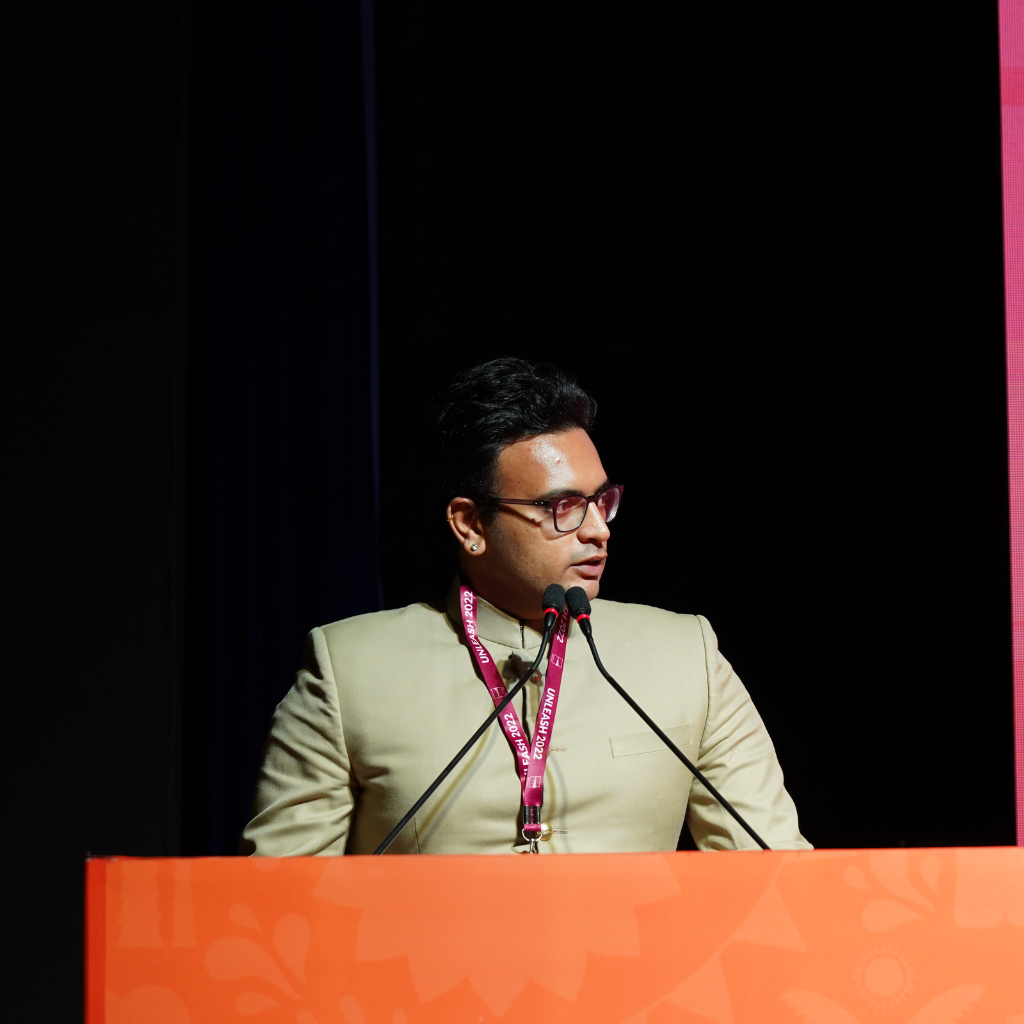
Maharaja
of Mysuru
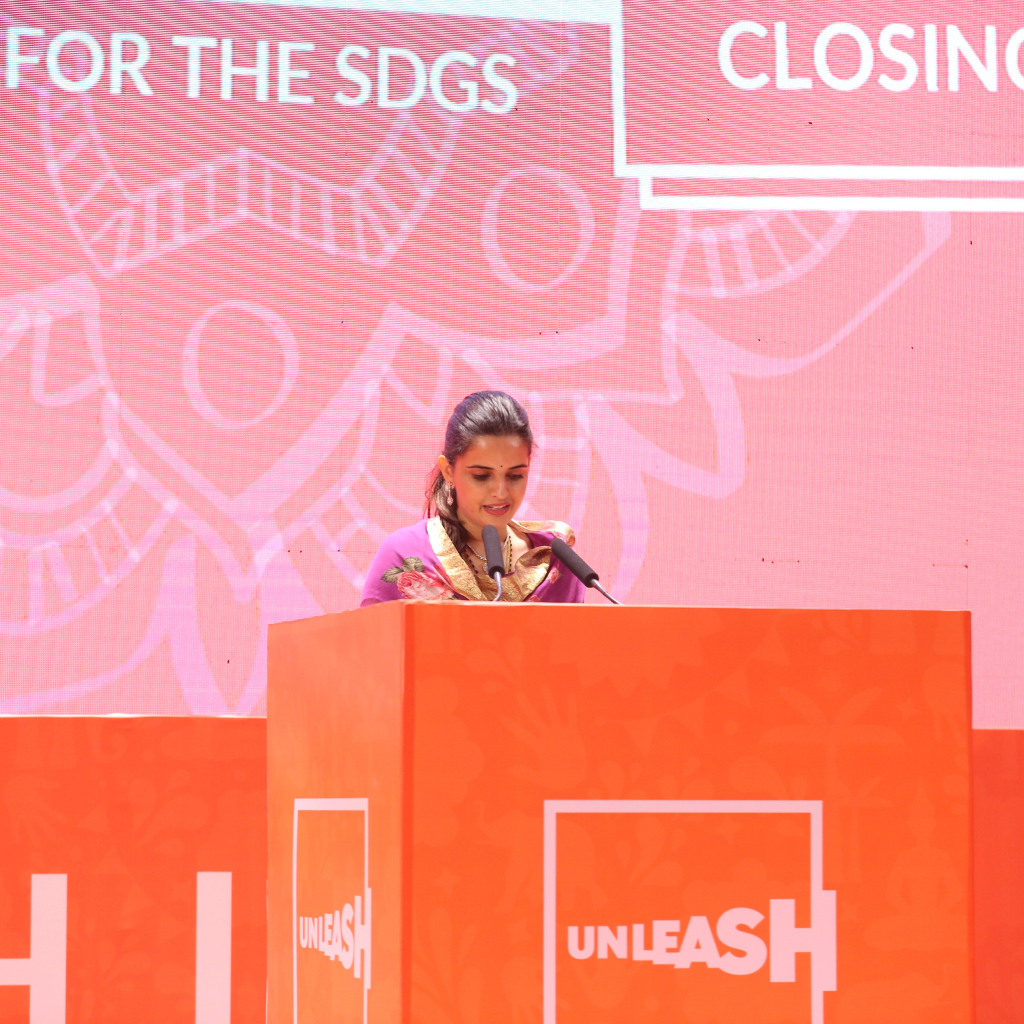
Maharani
of MYSuru
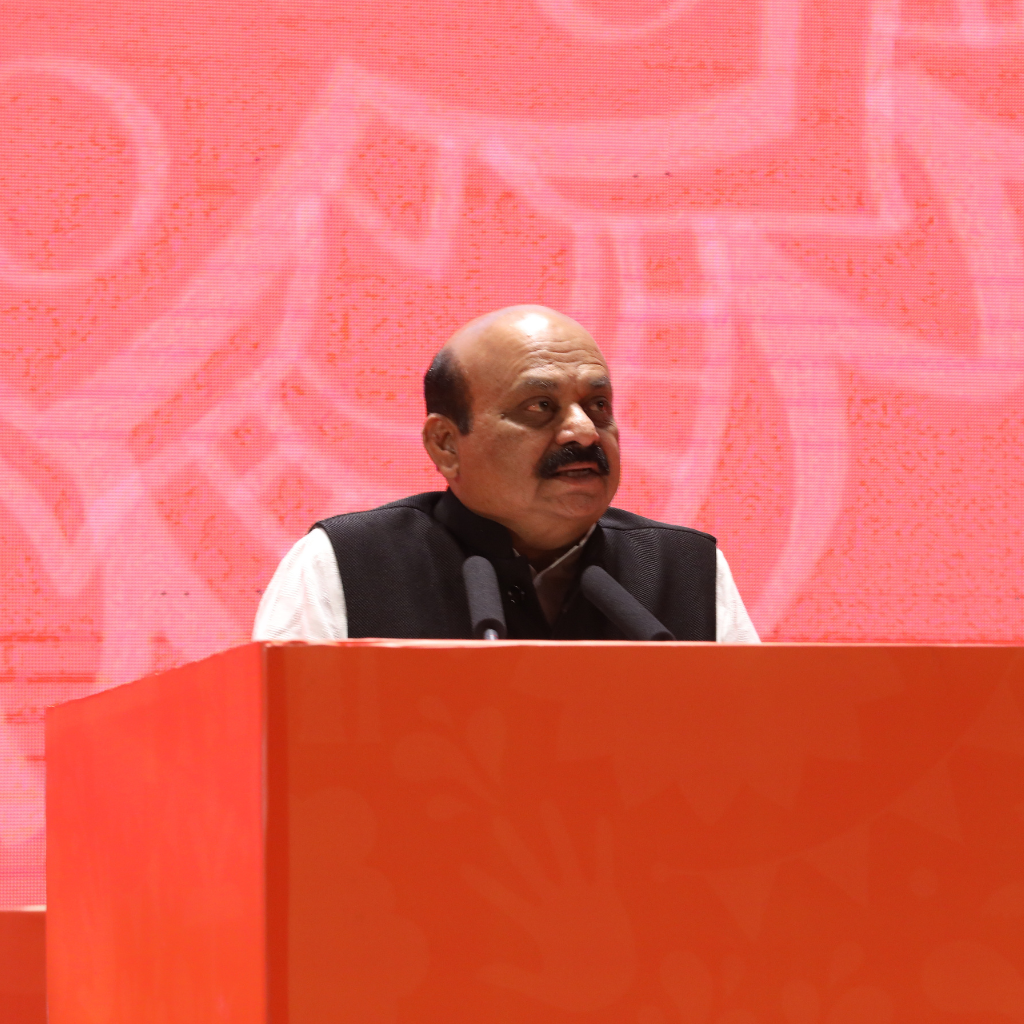
Shri Basavaraj
Bommai
Hon’ble Chief Minister
of Karnataka
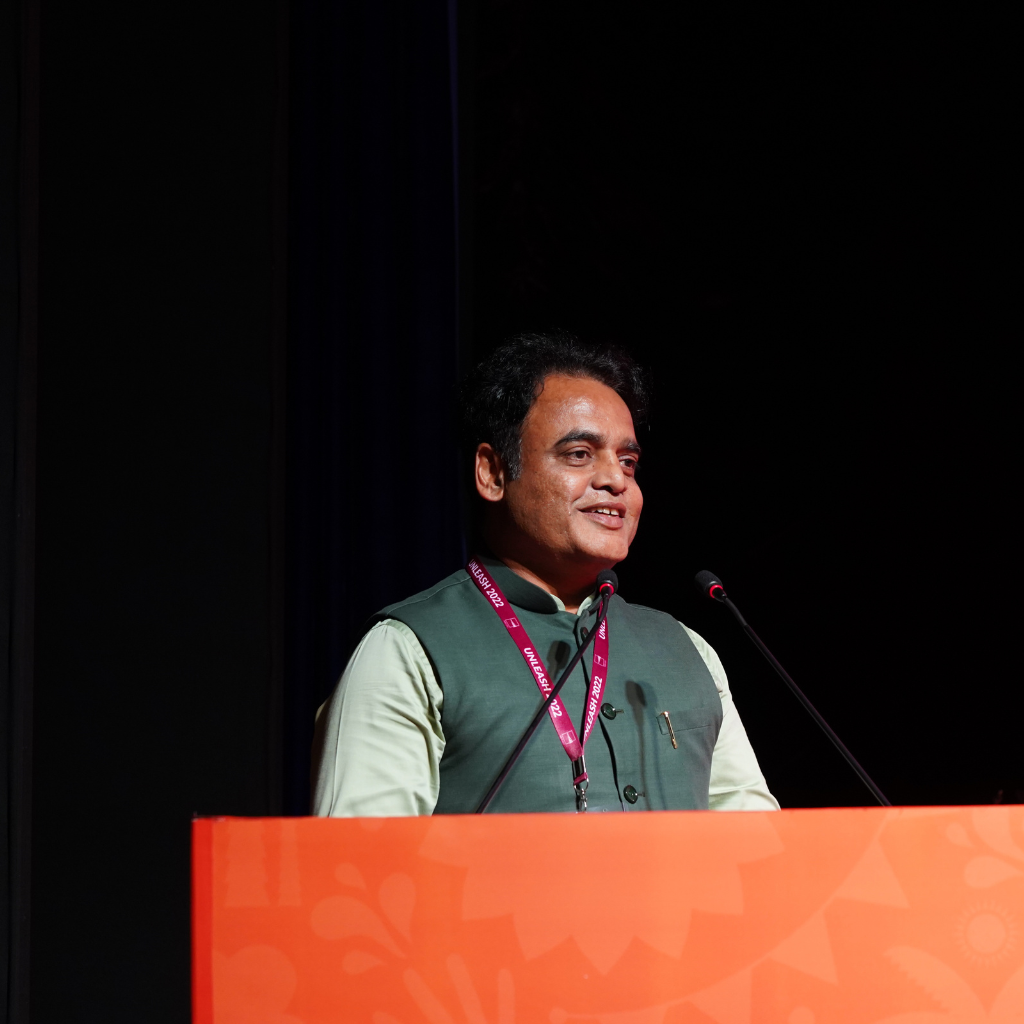
Dr. Ashwath
Narayan C.N
Hon’ble Minister for Electronics, IT & Bt, Science and Technology, Higher Education, Skill Development, Entrepreneurship and Livelihood
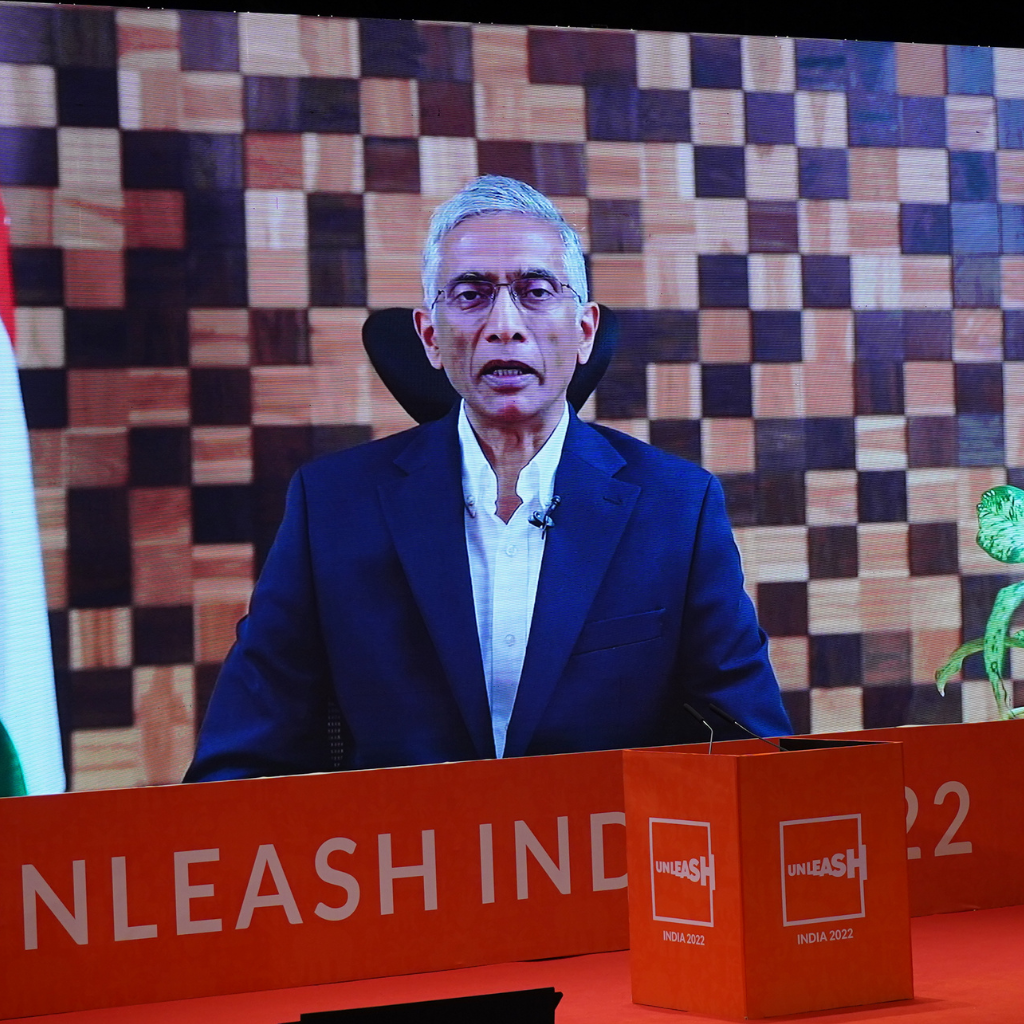
Parameshwaran
Iyer
CEO
NITI AAYOG
(Online)
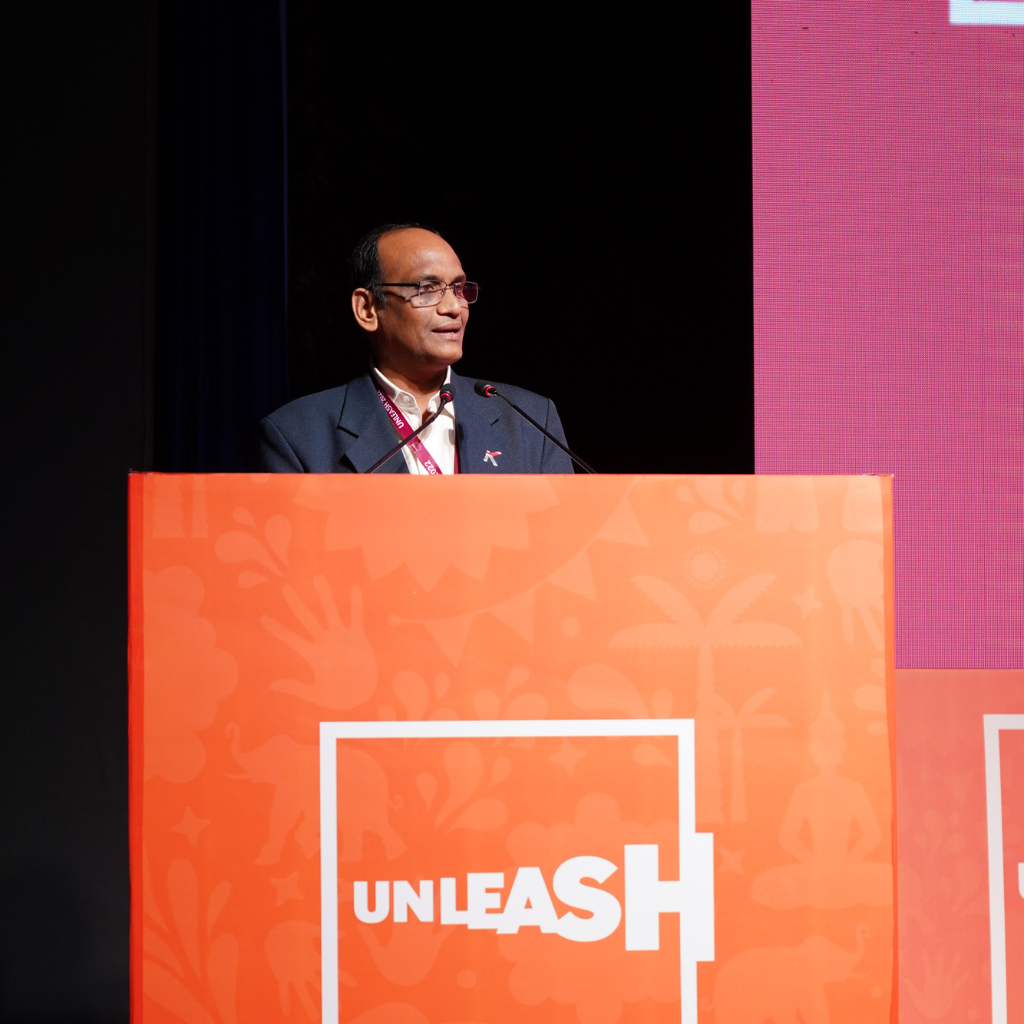
Dr. E.V.
Ramana Reddy
IAS, Additional Chief Secretary Department of Electronics, Information Technology & Biotechnology, Science and Technology; Department Commerce & Industries
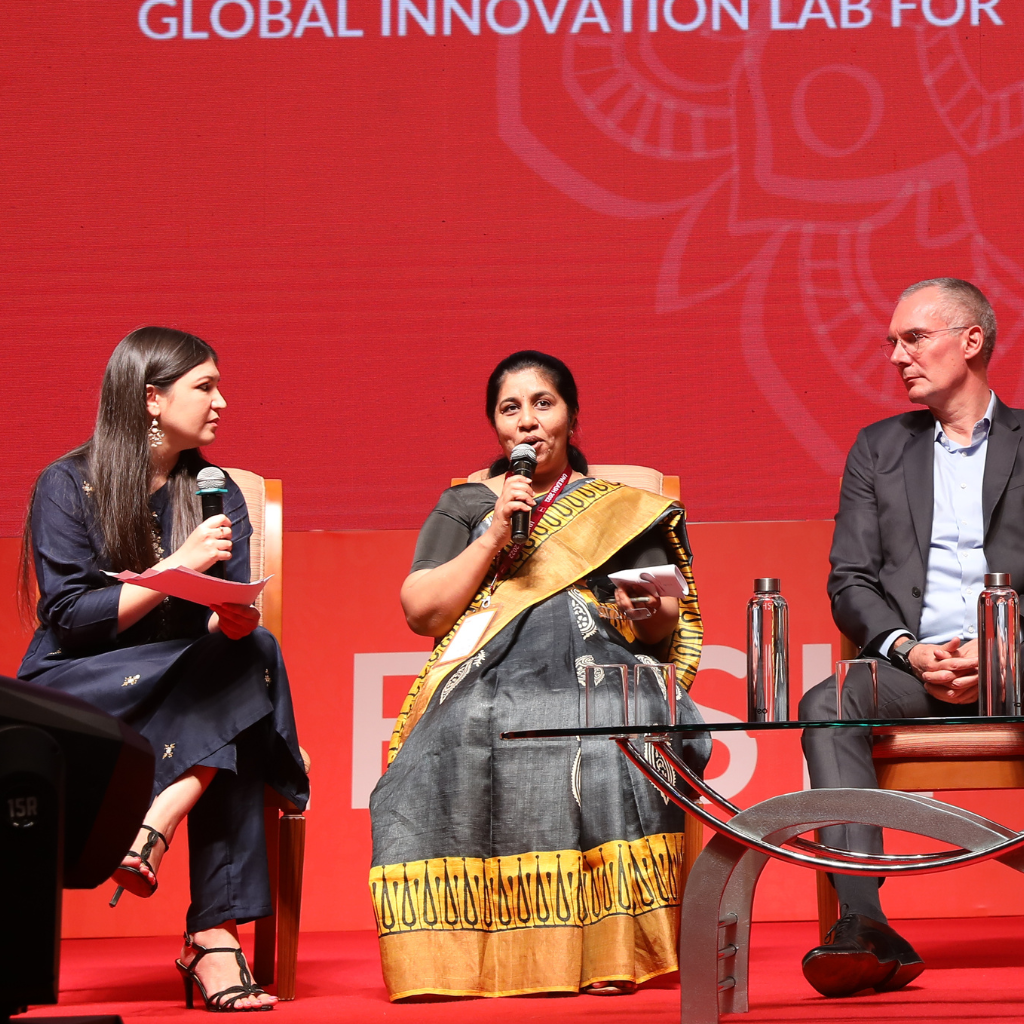
Smt. Meena
Nagaraj C.N
IAS, Director, Department of Electronics, Information Technology and Biotechnology & Managing Director, Karnataka Innovation and Technology Society (KITS)
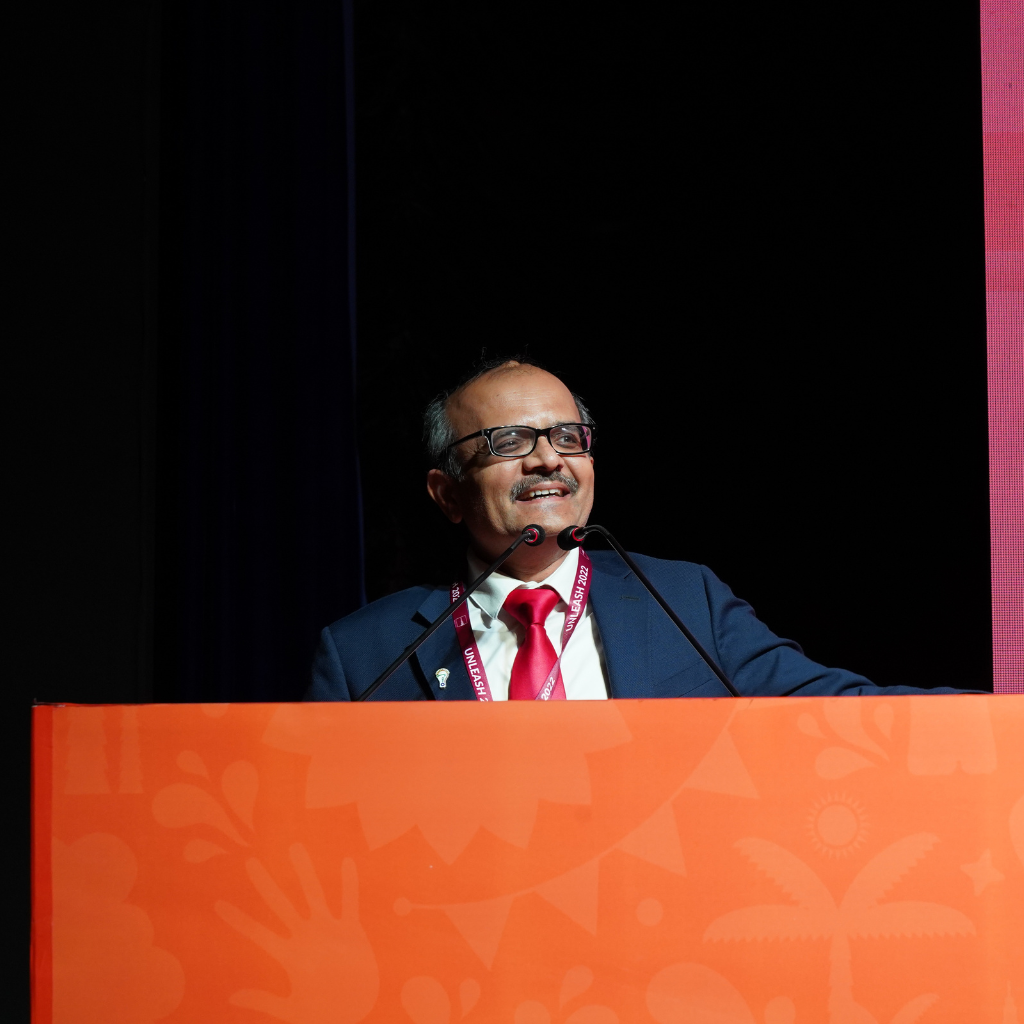
Dr. Chintan
Vaishnav
Mission Director
ATAL INNOVATION MISSION
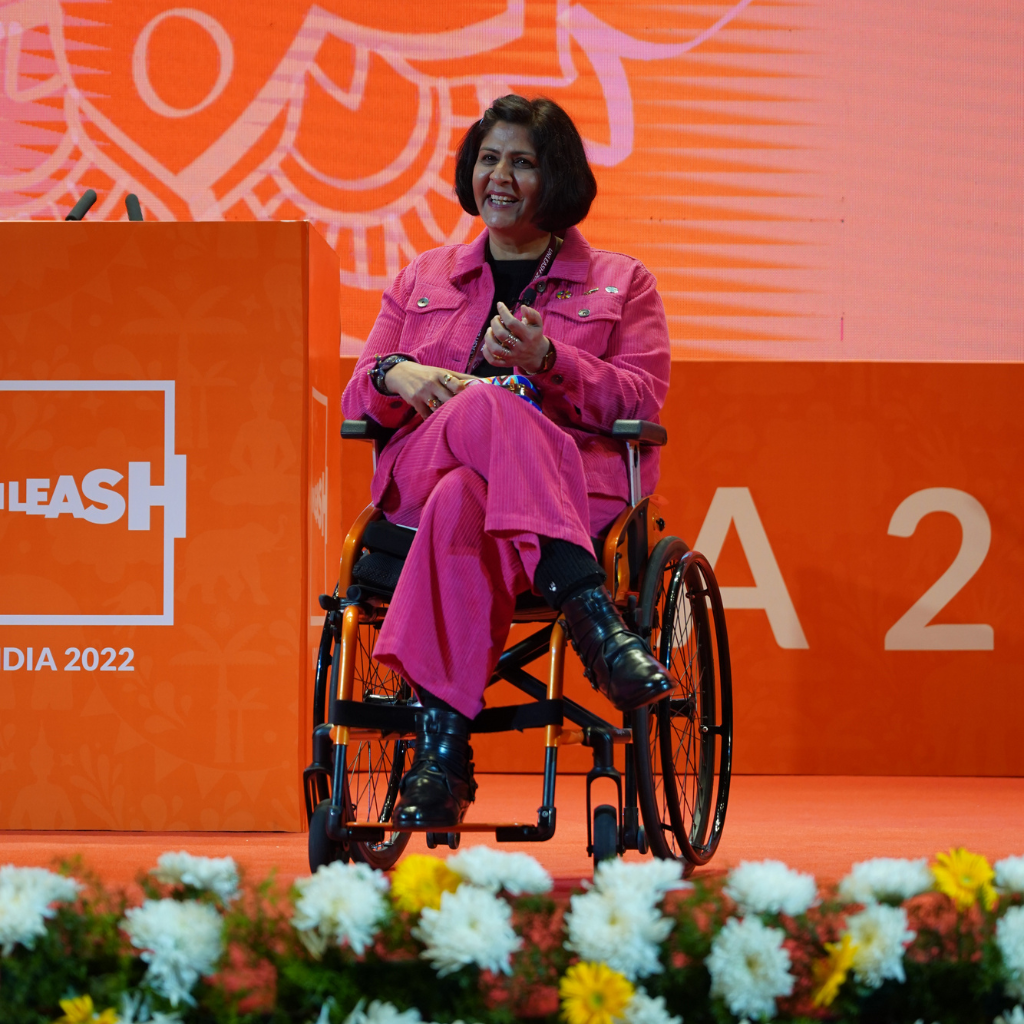
DEEPA
MALIK
Paralympic medalist
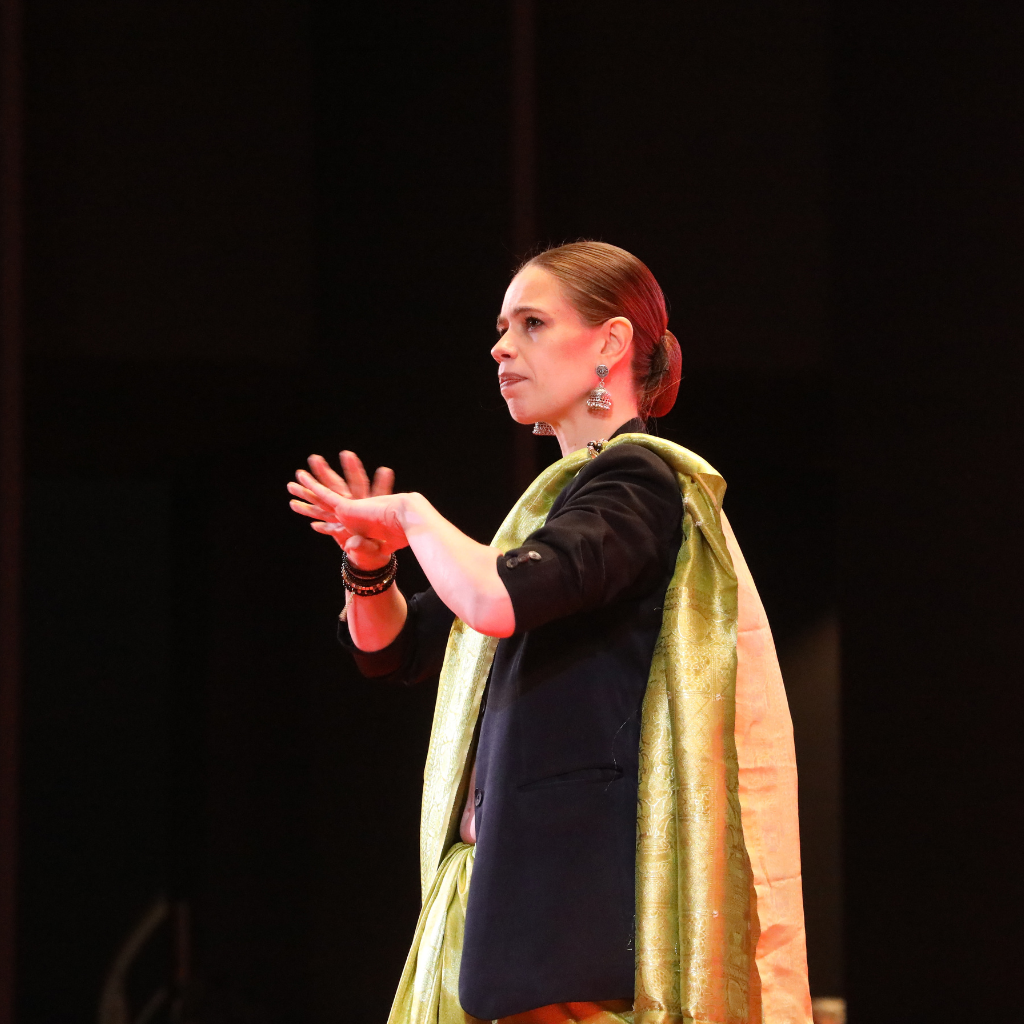
Kalki
Koechlin
Bollywood Actor
and Activist
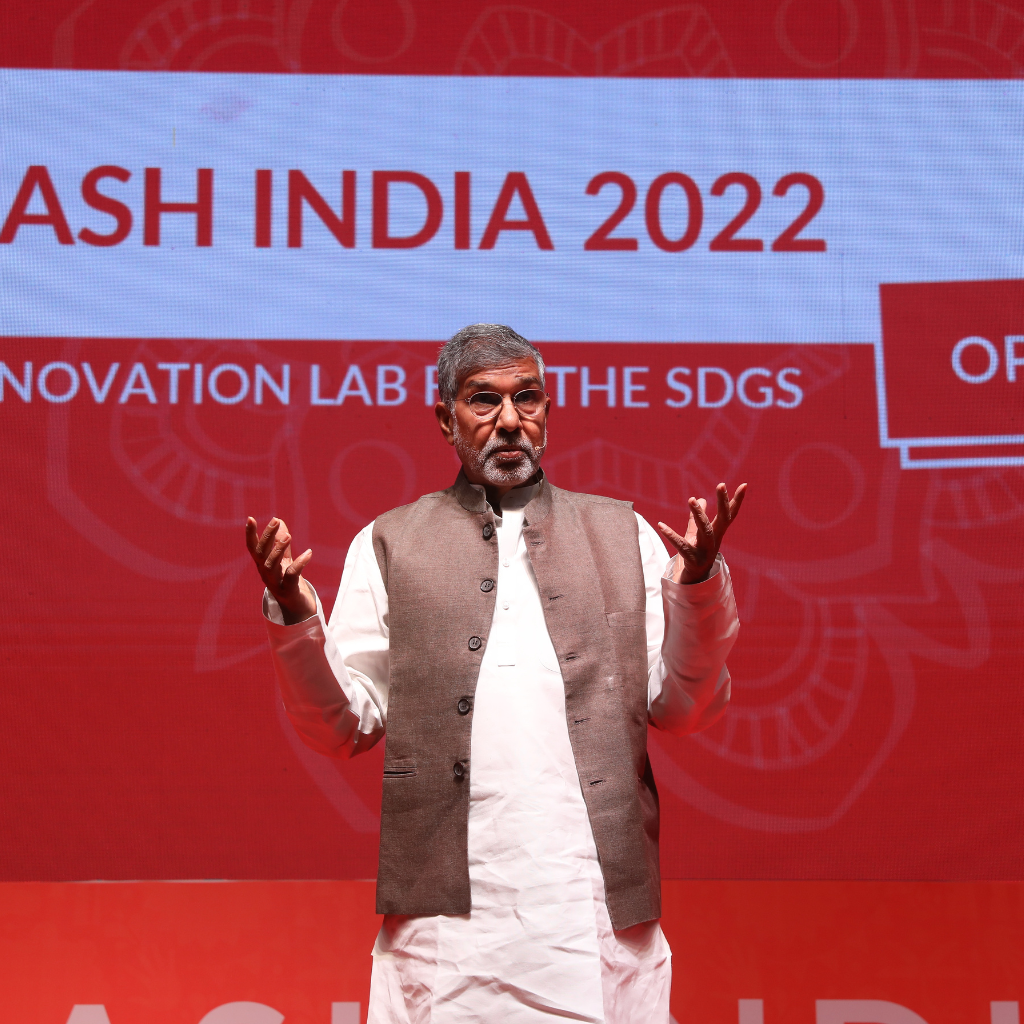
Kailash
Satyarthi
Nobel Peace Prize Laureate & Children’s Rights Activist
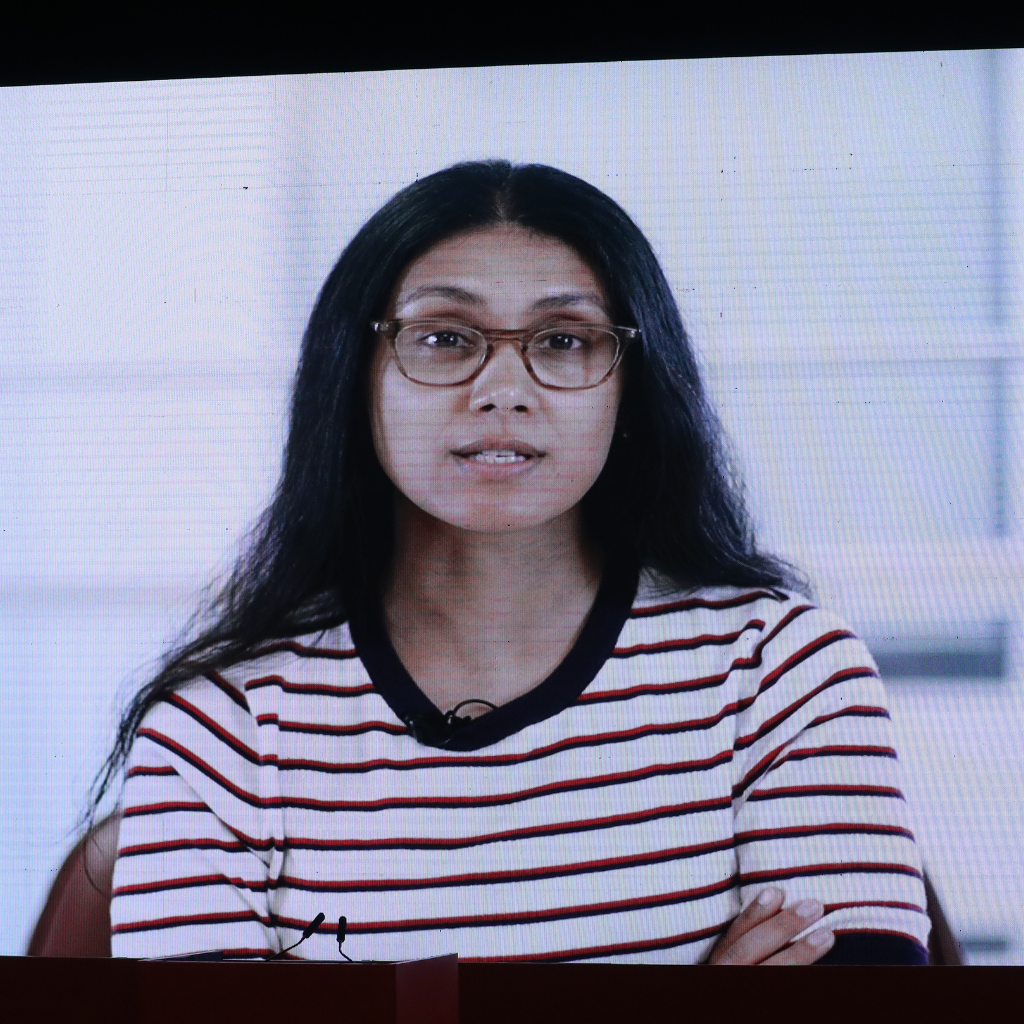
Roshni
Nadar
Chairperson
HCL TECHNOLOGIES
(Online)
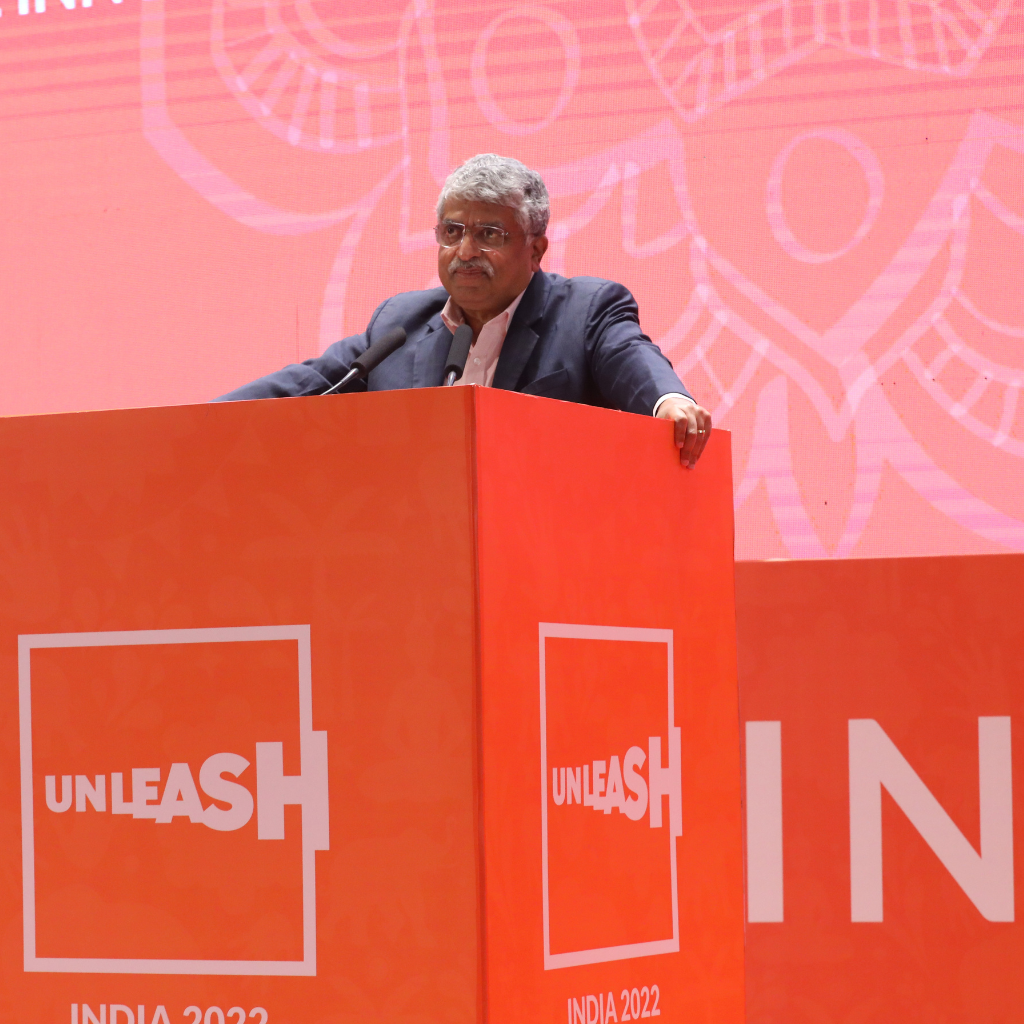
NANDAN
Nilekani
Chairman
INFOSYS
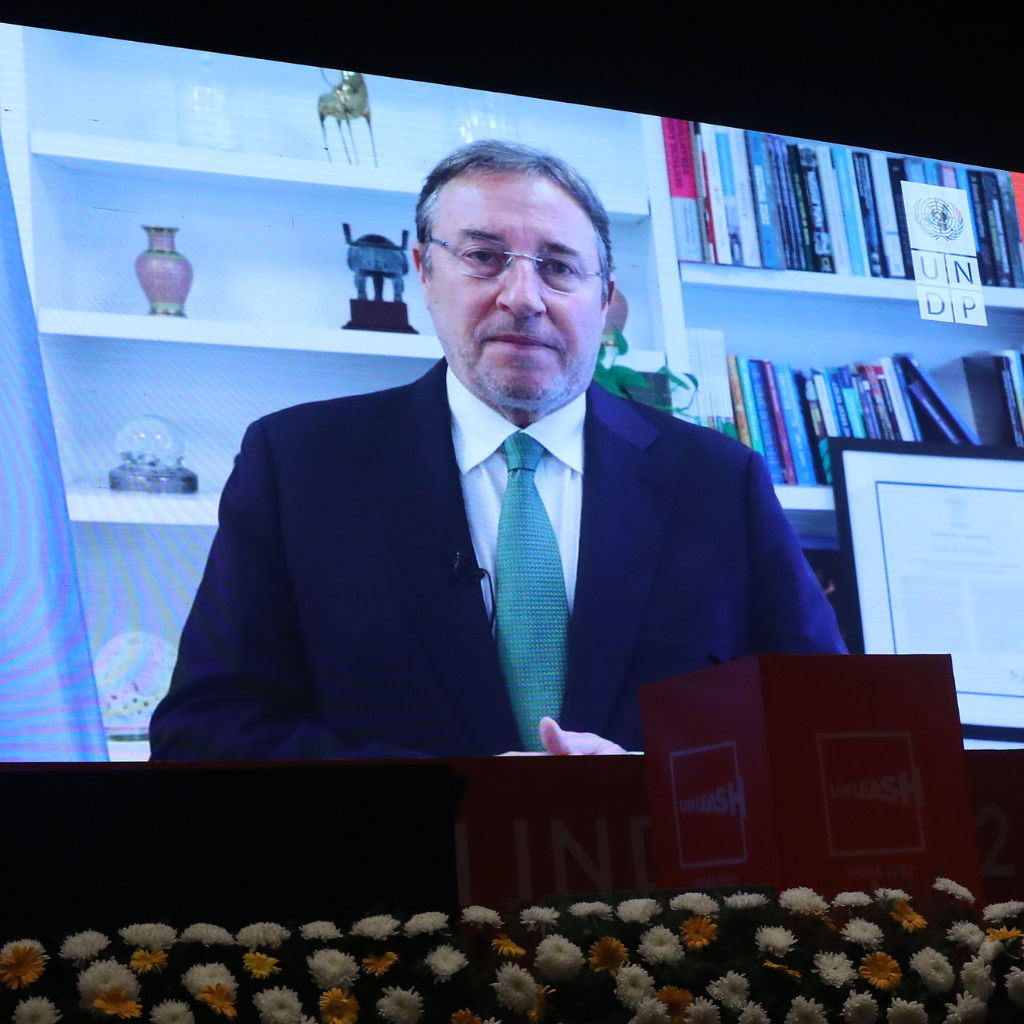
Achim
Steiner
Administrator
UNDP
(Online)
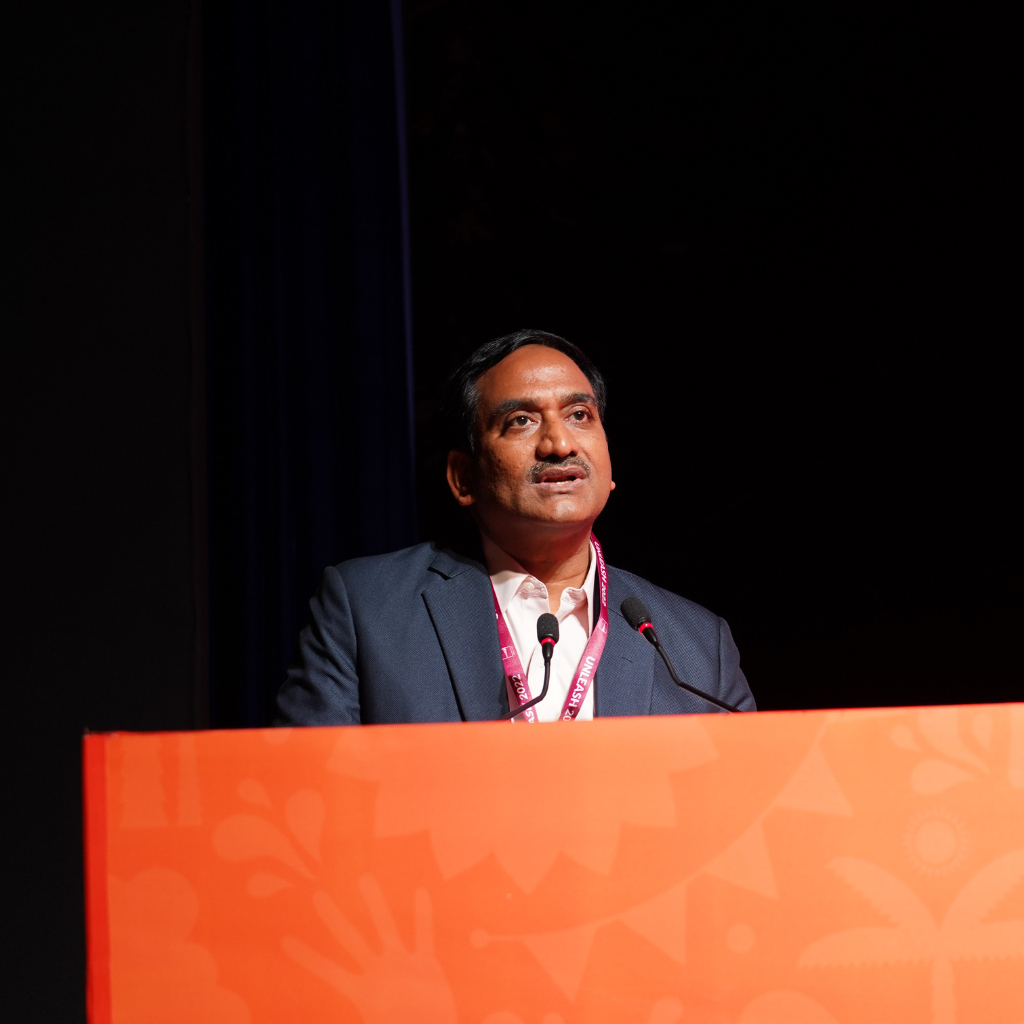
Thirumala
Arohi
Senior VP
INFOSYS
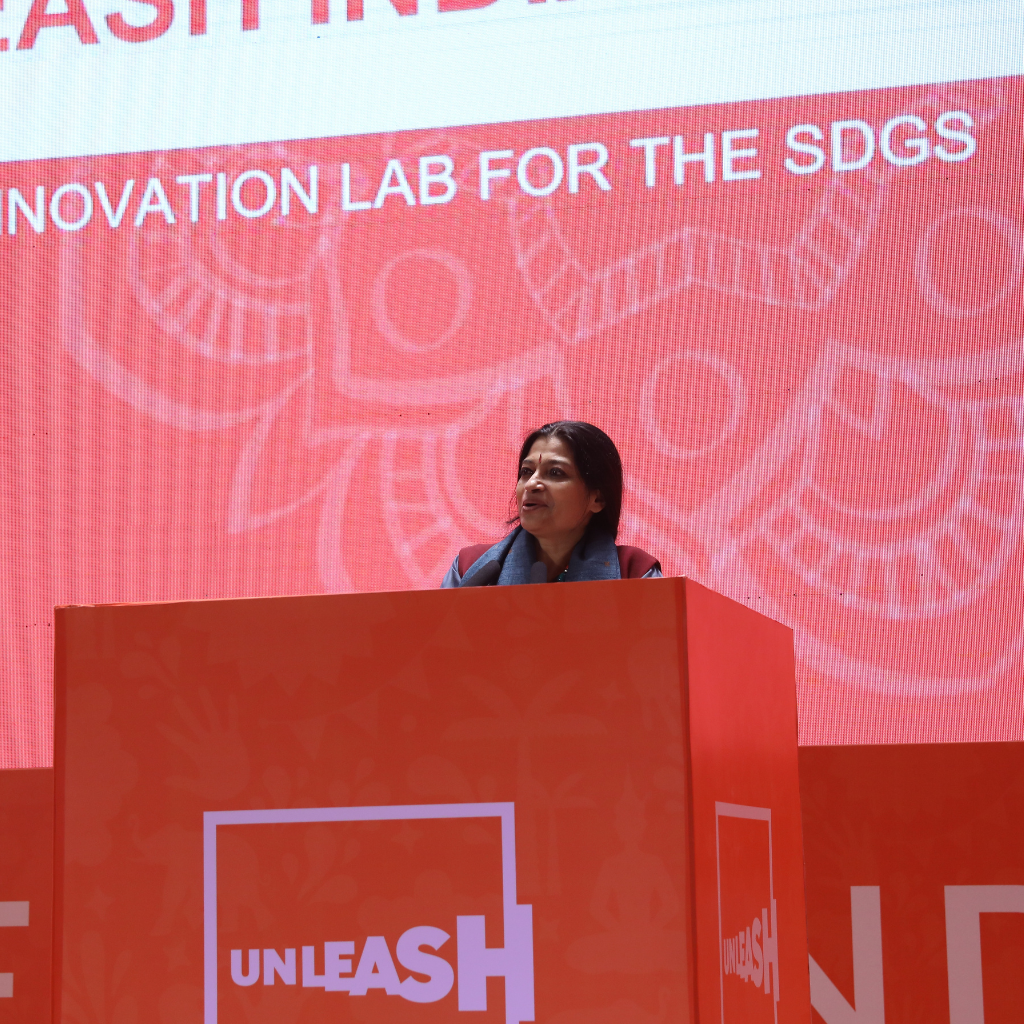
Dr. Ananya
Mukherjee
Vice Chancellor
SHIV NADAR IoE
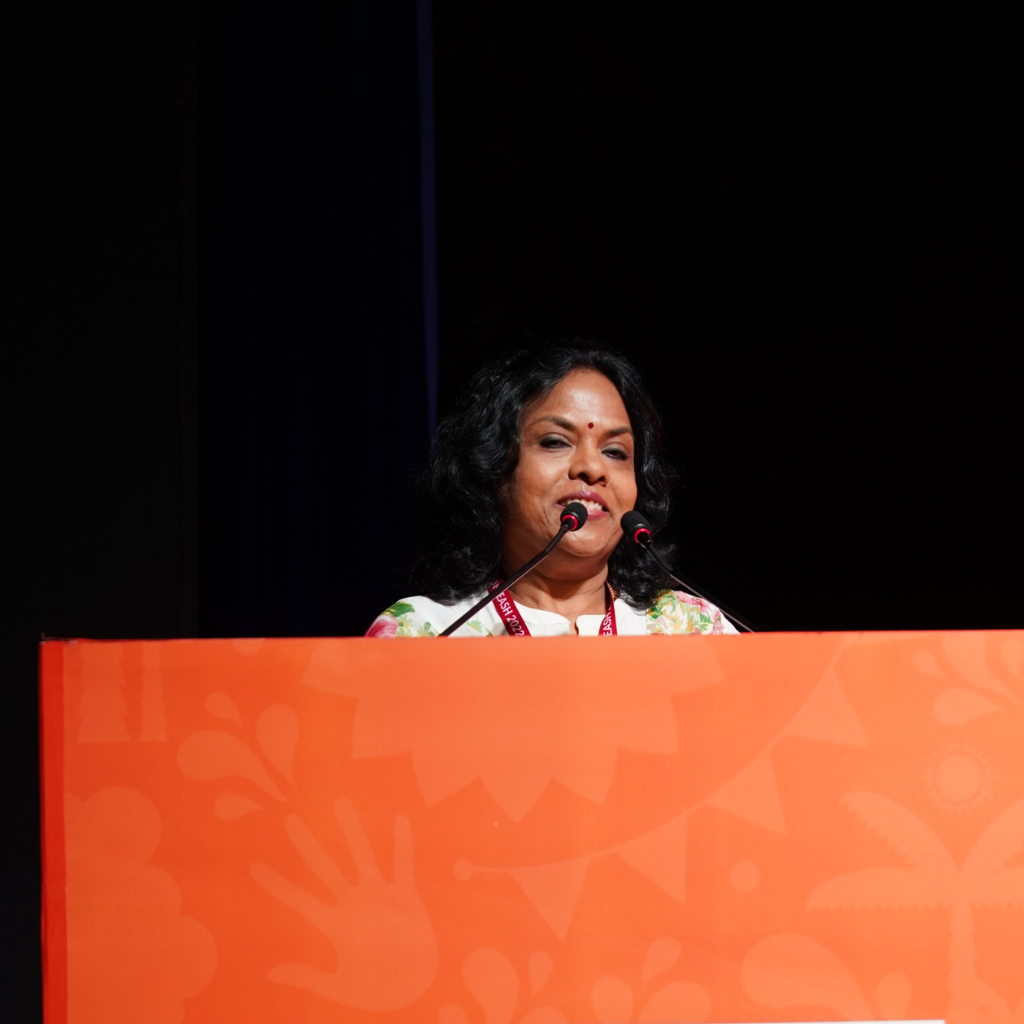
Dr. Kala Vijayakumar
President Sri Sivasubramaniya Nadar (SSN) Institutions and Pro-chancellor of the Shiv Nadar Institute of Eminence
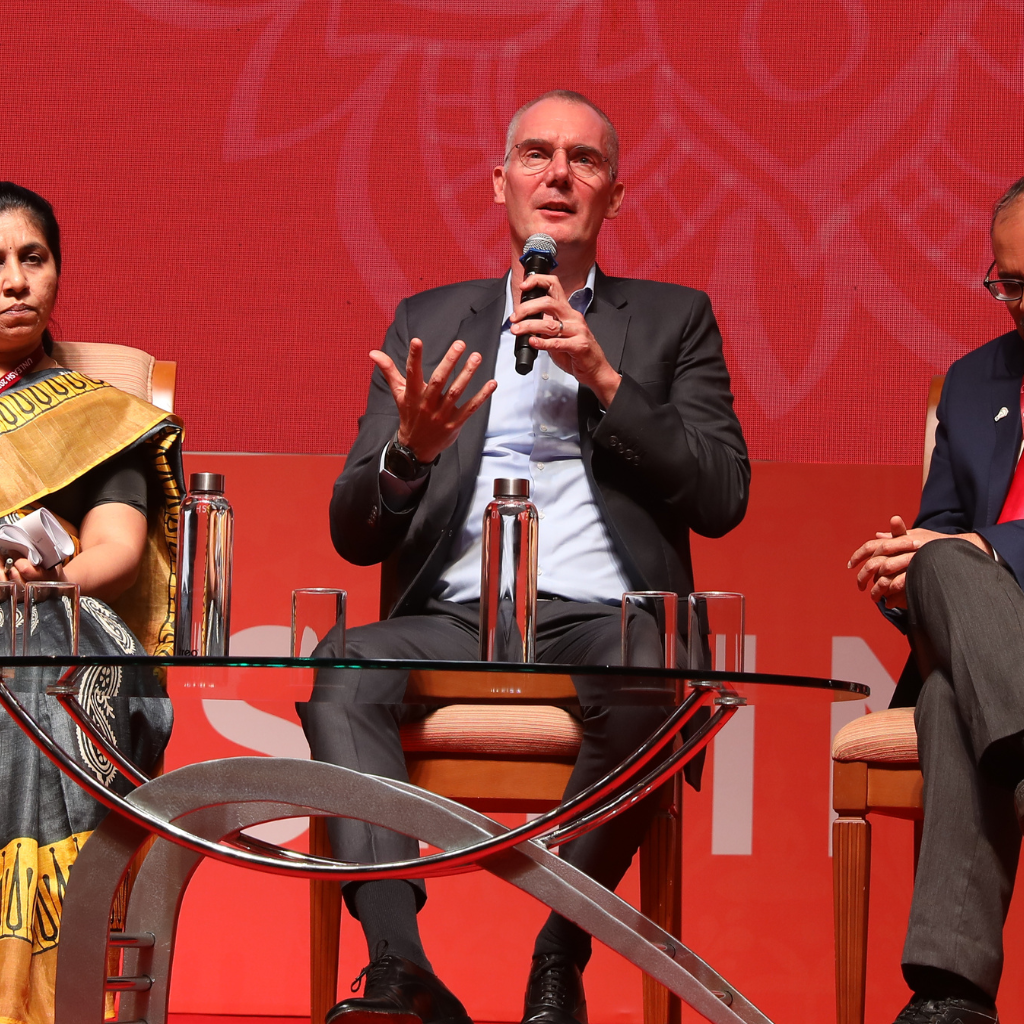
John
Dawber
Corporate VP
NOVO NORDISK

Vikrant
Shrotriya
MD & Corporate VP
NOVO NORDISK INDIA
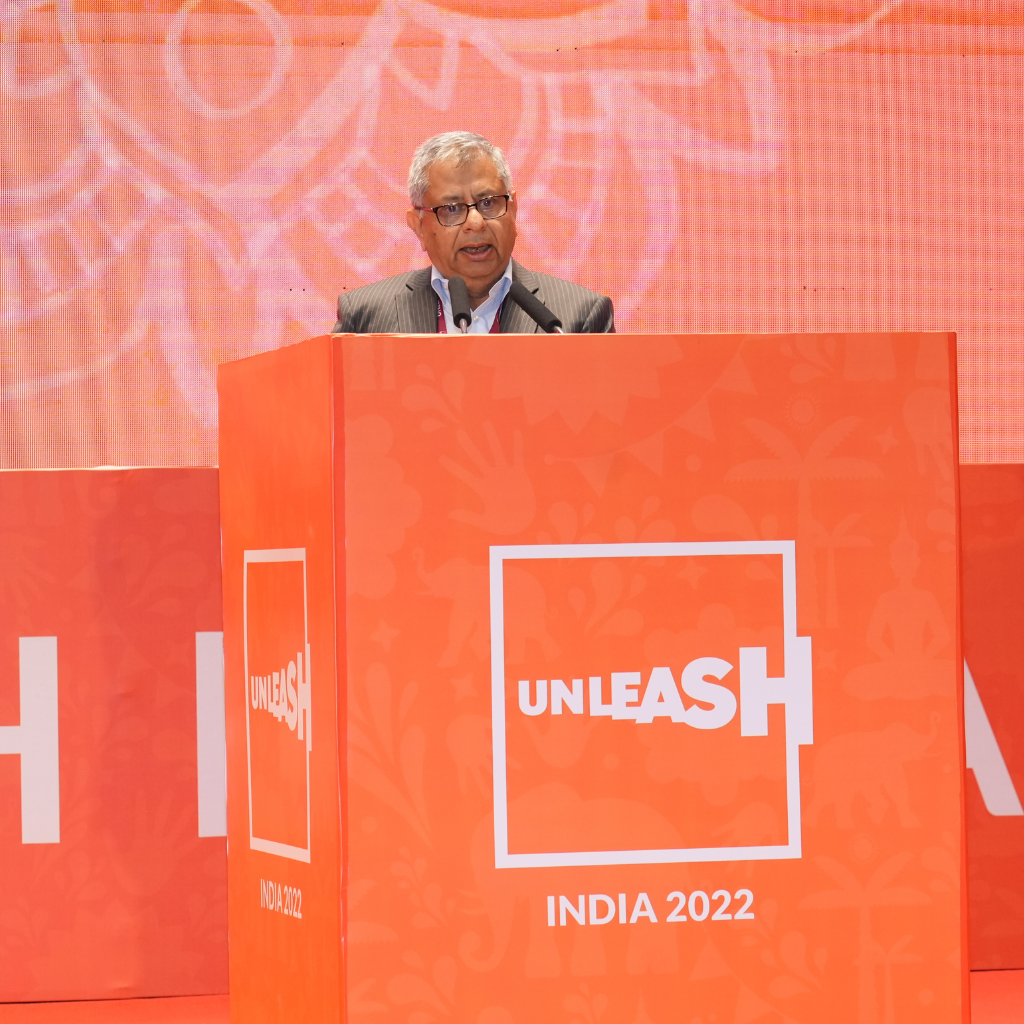
Anil
Kapur
Chairman of Board
WDF
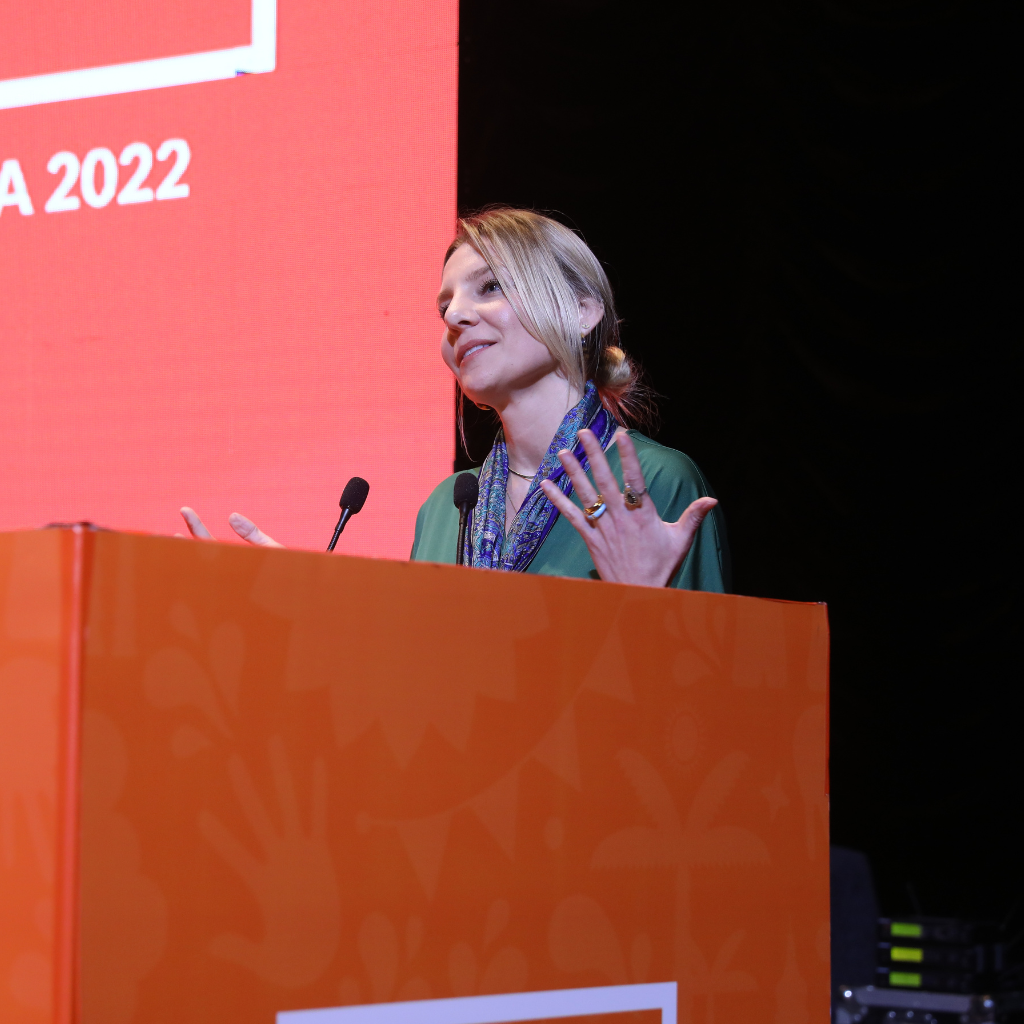
Lauren
Behr
Senior Advisor
CHEMONICS INTERNATIONAL
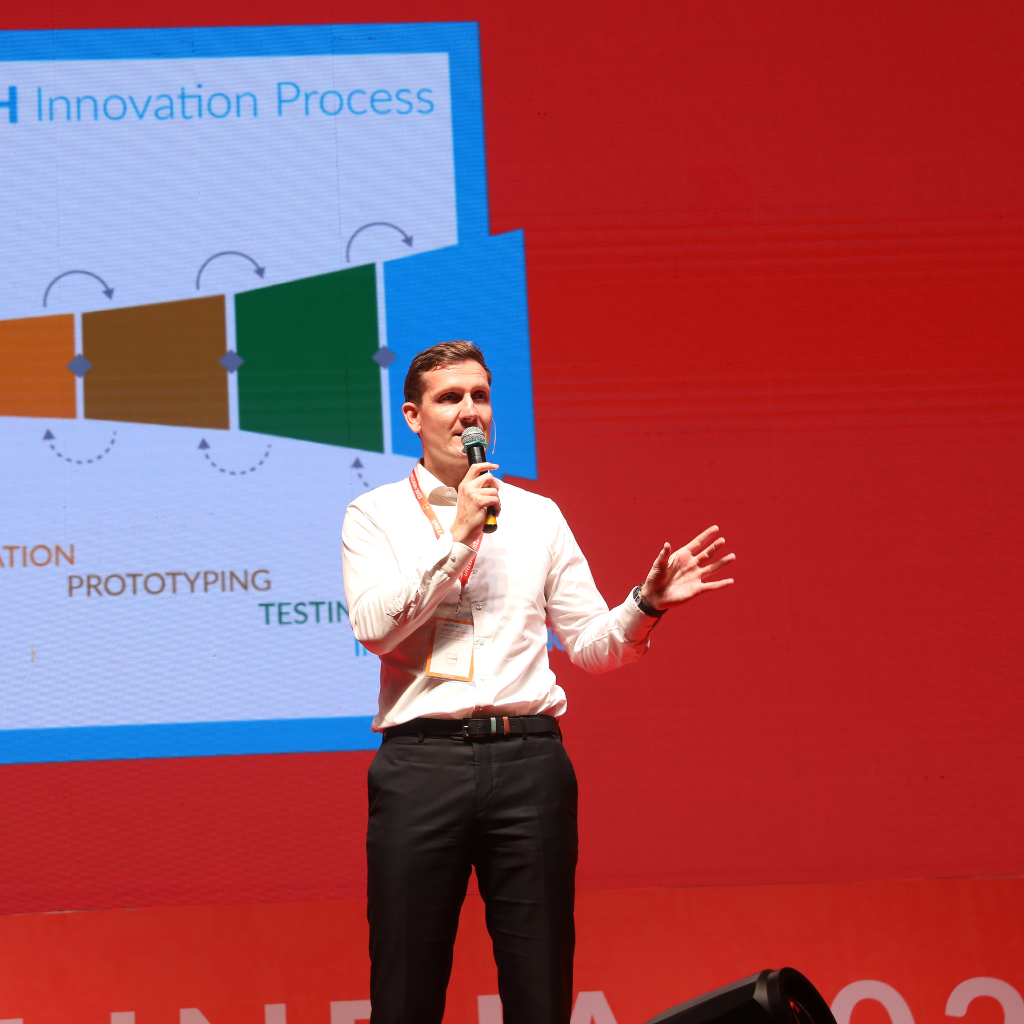
Andreas
kryger jensen
Partner
IMPLEMENT CONSULTING

